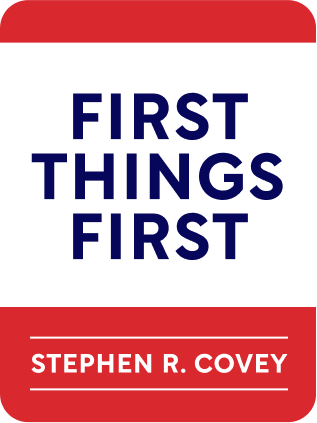

This article is an excerpt from the Shortform book guide to "First Things First" by Stephen R. Covey. Shortform has the world's best summaries and analyses of books you should be reading.
Like this article? Sign up for a free trial here .
Do you set goals for yourself? What’s the key to setting effective goals?
Most people agree that it’s important to set goals. But many people don’t know how to set goals effectively. The key to setting effective goals is to ensure they feed into the big-picture scheme of things as opposed to being a response to external forces.
Here’s how to set effective goals, according to Stephen Covey.
The 5 Characteristics of Effective Goals
In his book First Things First, author Stephen Covey explains how to set effective goals, that is, goals that have the following five characteristics:
- They’re conscience-driven. An effective goal isn’t inspired by urgency, it’s not a reaction to another person or an external force, and it doesn’t reflect the social mirror; an effective goal is in line with your mission and personal principles.
- They’re important. Effective goals connect your “what” with its “why.”
- They’re based on our needs and capacities. Most of us focus on goals that meet our physical needs but ignore our spiritual, social, and mental needs. We need to address all our needs and capacities and see their interconnectedness to live a meaningful life.
- They’re in your Center of Focus. The Center of Focus is the place where your time and energy are best spent. All the things you think and worry about fall into your Circle of Concern; this includes everything from your health to politics to climate change. Many things in your Circle of Concern are out of your control, and thus are ultimately not worth your energy.
- They’re determinations or concentrations. A determination is something you’re set and determined to do, no matter what obstacles you face. A concentration is something you choose to focus on and dedicate effort to. A determination puts your integrity at stake; it’s essentially a commitment you’ve made to yourself: you must make a priority of following through on your determinations in order to keep your integrity high. A concentration is a milder commitment that doesn’t risk your integrity.
Effective Goals Are “Context” Goals
According to Stephen Covey, goal setting is most effective when it is contextual, that is, when your goals feed into the bigger picture of your life. For example, if your goal is to maintain good physical health, you may make a long-term goal of becoming vegetarian and running five hours a week within five years, which you narrow into a weekly goal of eating four meatless meals and exercising for three hours.
However, these long- and mid-term goals fall into the trap of putting goals in a chronos, clock-oriented framework. Context isn’t just about looking at the long term, but at the broader view of why you do things; instead of using the clock for context, create context by identifying your “what,” “why,” and “how” for your goal.
For example, for the same goal of maintaining a healthy body (that’s the “what”), your “why” might include that you want to have the physical strength and endurance to pursue your mission, you want to be a positive example of self-care and good health to your children, and you want to strengthen your personal character by sticking to a healthy eating and exercising regiment. Your “how” can include making nutritious meal choices, maintaining a daily exercise routine, committing to positive thinking, and continually learning about good health and nutrition.
The “what/why/how” approach maintains a strong connection between your mission, principles, and goals. It also helps you see how your various roles and human needs are interconnected, so that you can make goals that are synergistic and address multiple needs or roles at once.
For instance, when you have the “what/why/how” context for your goal of good health—which is in the physical dimension of your “sharpen the saw” role—you’re reminded that one “why” is your desire to set a good example for your children. With that in mind, you can set a weekly goal of taking a hike with your children, which also incorporates your social dimension as well as your role as a parent. By contrast, if you’d created context by simply having a long-term goal of exercising more hours per week, you’d be less likely to recognize the opportunity for such a synergistic weekly goal.
Make a “Perhaps” List
Sometimes you may be struck with inspiration that could be a goal, but you aren’t ready to commit to it yet. You need time to evaluate whether it aligns with your mission, but don’t want to lose the idea. Put it on a “perhaps” list.
A “perhaps” list gives you a place to write down possible goals before prematurely committing to them and risking a withdrawal from your Personal Integrity Account. Without such a list, these kinds of ideas either bounce around your mind—cluttering your thoughts and giving you a sense that there’s something you should but haven’t accomplished—or land on a catch-all to-do list that grows faster than you can tackle it and mingles priority tasks with unimportant matters.
Set Weekly Goals
Setting weekly goals, as discussed as part of the Quadrant II organizing process, gives you an opportunity to think about your roles and your mission within each role. Using the “what/why/how” context helps you see what’s important for each role as you set your goals. This constant reminder of your underlying mission, vision, and principles also helps you recognize when opportunities arise that align with your mission.
As you set and achieve weekly goals, you’re also making constant progress toward your mission as well as regular deposits in your Personal Integrity Account. This increasingly builds your confidence and conviction to make further and more substantial progress moving forward.

———End of Preview———
Like what you just read? Read the rest of the world's best book summary and analysis of Stephen R. Covey's "First Things First" at Shortform .
Here's what you'll find in our full First Things First summary :
- How to work effectively, not just efficiently
- Why you need to think more about what you're spending time on than how much time you're spending
- The 6 steps to effectively schedule and prioritize important activities






